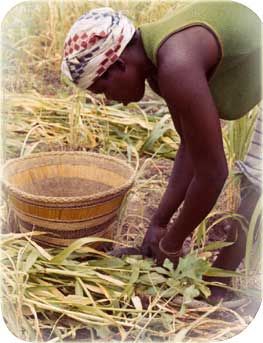 Biotechnology,
Food and Agriculture
Biotechnology,
Food and Agriculture Environmental Studies 166BT
Geography 171BT
Anthropology
166BT
Instructor: David Cleveland
Prerequisite: Upper division standing
Our food and agriculture system—from small-scale, low-input, traditionally-based in the Third World, to large-scale, high-input, modern in the industrial world—is struggling to keep up with the demand of the human population (7 billion plus in 2013 and growing). At the same time, in the face of climate, biodiversity, social and economic crises, it also needs to become more sustainable. Are transgenic crop varieties (TGVs) the key to the future of our agrifood system?
We will answer that question by asking a series of others. Where did agricultural biotechnology, especially transgenic crop varieties (TGVs), come from? Why were TGVs created? How do we know what TGVs really are, and what their effects are, or will be? What should their effects be, that is, what should be the goals of our agrifood system? Especially important questions to ask are: On what assumptions are different perspectives of the agrifood systems based? How do these assumptions affect the definitions, indicators and policies for the role of TGVs?
This class will critically examine the data, values and assumptions on all sides of the debate, to help students achieve a deeper understanding of possible answers to these questions. This will provide the basis for individual and social actions and for policies, at local to global scales.
Student evaluation is based on quizzes in lectures, participation in discussion sections, and a final exam.
| 166BT Home | Syllabus | Weekly assignments & Quizzes |Cleveland's classes | Cleveland's homepage | |
All pages on this site copyright © 2001-end of anthropocene by David A. Cleveland